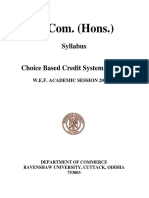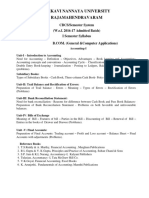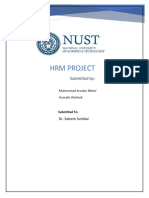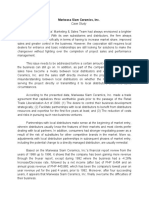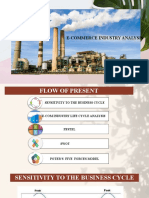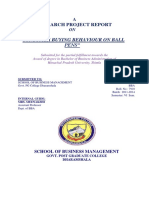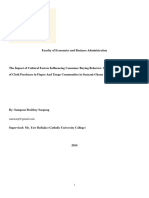Department of Commerce
Lucknow University
B.COM. SYLLABUS SEMESTER-WISE
PROGRAMME OBJECTIVE
The objective of the B.Com. programme at the University of Lucknow is to familiarise
students with principles and concepts in the discipline of Commerce. The student will gain
indepth knowledge of accounting, finance, business law, marketing, tax and costing. This
program aims to provide students with specific knowledge and skills relevant to their career.
The programme aims to make students aware of the new and emerging trends in the field of
Commerce.
PROGRAMME OUTCOMES
This programme offers great career options and opportunities for students by providing them
with relevant core and specific knowledge skills in the discipline of Commerce.
1. This programme would provide qualified graduates to the corporate sector, banking
sector, insurance sector, financing service sector to meet their employment
requirements.
2. Students can gain specialization in the field of Accounting, Costing, Finance and
Taxation and acquire application oriented skills.
3. Students can independently Start-up their own Businesses as well as avail of self
employment opportunities.
4. This programme imparts skills to students to sharpen their decisions making abilities
both at personal & professional level.
5. Students will gain thorough knowledge in the field of finance and commerce and
stand out in any organization. Students will develop an attitude for working efficiently
and effectively in the business environment.
PROGRAMME SPECIFIC OUTCOMES
After completion of the course the students will acquire an indepth understanding of the core
and new disciplines of the commercial world.
1. Students can become efficient managers in the field of Banking and Insurance.
2. Students can acquire practical skills and take up jobs as Accountants, Management
Accountants, Audit Assistants and Executives in multinational companies.
3. After undergoing special training students may enrol to operate in the Stock markets.
4. Students can excel in different professional exams like C.A., C.S., CMA & MBA.
5. After clearing the requisite exam students can qualify for various Government jobs.
6. After undergoing a specialised course, students can become Tax and Financial
Consultants.
7. Students can go for higher education and research in the field of finance and
commerce.
1
� FACULTY OF COMMERACE
LCUKNOW UNIVERSITY
B.COM. COURSE STRUCTURE (SEMESTER-WISE)
(Corrected)
I Year
SEMESTER -I SEMESTER -II
1 Financial Accounting 1 Company Accounts
2 Business Organisation 2 Business Laws
3 Micro Economics-Concept, Consumption & 3 Micro Economics-Exchange and Distribution
Production
4 Currency, Banking and Exchange 4 Banking Operations
5 Essential of Management 5 Human Behaviour at Work
6 Business Communication 6 Concepts in Valuation
II Year
SEMESTER -III SEMESTER -IV
1 Business Finance 1 Cost Accounting
2 Principles and Practice of Marketing 2 Contemporary Audit
3 Statistical Methods 3 Foreign Trade of India
4 Public Finance 4 Export-Import Procedures and
Documentation
5 Selling and Advertising 5 Managing Human Resources
6 Introduction of International Business 6 Information Systems and E-Commerce
III year
SEMESTER -V SEMESTER -VI
1 Goods and Services Tax (GST) 1 Income Tax Law and Accounts
2 Labour Welfare Laws 2 Principles and Practice of Insurance
3 Macro Economics 3 Applied and Business Statistics
4 Indian Economy 4 Economics of Public Enterprises
5 Institutional Framework for Business 5 Company Law and Secretarial Practice
6 Business Operations 6 Fundamentals of Entrepreneurship & Project
Planning
7 Comprehensive Viva-voce
NOTE : (1) Each Semester will be six months duration.
(2) Each paper will carry 100 marks including Comprehensive viva-voce
Total marks = 3700
2
� B.Com. – Semester I
Paper I : Financial Accounting
Course Objective:
The objective of this paper is to help students in acquiring conceptual knowledge of financial
accounting. It aims to impart skills for recording & analyzing various kinds of business
transactions and to familiarise students with the accounting procedure of different kinds of
businesses.
Course Outcome: The student will be able to :-
Acquire knowledge in the basic concepts and conventions of accounting.
Prepare accounts of a partnership firm.
Prepare accounts of special kinds such as Royalty accounts, Voyage accounts and Branch
accounts.
Prepare accounts as per norms in case of Hire Purchase & Instalment Purchase as well as
Insolvency of the business units.
Gain insight into the Indian & International accounting standards as well as IFRS.
Develop skills in understanding and analysing the contents incorporated in books and
accounts.
Unit I : Definition, Nature and Scope of Accounting, Concepts and Conventions,
Introduction to Financial Statements, Capital and Revenue Items, Indian Accounting
Standards & IFRS.
Unit II : Partnership Accounts - advanced problems and detailed study. Admission,
Retirement and Death of partners, Dissolution of Partnership Firm.
Unit III : Hire Purchase and Instalment Accounts, Royalty Accounts, Insolvency Accounts.
Unit IV : Insurance Claim for loss of Stock and Loss of Profit, Branch Accounts, Voyage
Accounts.
Books Recommended:
1. Kumar, Arvind & Saxena, Vishal – Financial and Advanced Accounting
2. Shukla, S.M. – Financial Accounting
3. Kumar, Audhesh - Financial Accounting (foRrh; ys[kkadu)
4. Anthony, R.N. and Reece, J.S. : Accounting Principles
5. Gupta, R.L. and Radhawamy, M. : Financial Accounting
6. Shukla, M.C., Grewal, T.S. and Gupta, S.C. – Advance Accounting
7. Compendium of Statement Sledners of Accounting- The Institute of Chartered
Accountants of India, New Delhi
8. Mishra, A.K. : Financial Accounting
9. Gupta, S.P. Financial Accounting
3
� B.Com. – Semester I
Paper –II : Business Organisation
Course Objective:
This course aims to make the students understand the organisational elements essential for a
business entity. This course enables students to analyze and understand the environment of
the organization and help the students to develop cognizance of the importance of
organisation principles.
Course Outcome: The students will be able to:
Understand basics about business organization and its various forms.
Understand the Social Responsibility of Business towards the various groups of the
society
Get knowledge about computation and fixation of remuneration of labour and incentive
plans.
Gain insight about features of stock exchanges, commodity exchanges and their working
as well as regulation.
Gain knowledge of the new pattern of business operations and organisations i.e., E-
business, LLP, OPC.
Understand the various elements of organisation.
Acquaint themselves with the global changes in the business arena.
Unit-I : Nature and scope of business, Social Responsibility of Business, Size of business
units, Stock Market, Commodity Market, E-business, Business Environment.
Unit-II : Forms of business organizations and comparative study - Sole Proprietorship,
Partnership, Joint stock company, co-operative organisation, One Man company.
Unit –III : Business combination and its types, Rationalisation and automation, Government
and Business, Methods of Remunerating Labour.
Unit-IV : Organization process – Importance, Principles, Types of organization structure,
Centralisation and Decentralisation, Committees, Departmentation, Delegation of authority.
Books Recommended:
1. Padmakar Asthana – Business Organisation
2. Maheshwari, K.L., Maheshwari, R.K. & Ram Milan - Business Organisation
3. Maheshwari, K.L., Maheshwari, R.K. & Madhu Bhatia – Vyavsayik Sanghtan
4. Y.K. Bhushan - Business Organisation
5. Companies Act, 2013.
4
� B.Com. – Semester II
Paper I : Company Accounts
Course Objective:
The objective of this paper is to help students acquire conceptual knowledge with respect to
the Accounts of a company and to understand the provisions of the Company’s Act 2013. It
aims to provide knowledge of the accounting procedure adopted in different kinds of
companies.
Course Outcome: The student will be able to :-
Understand the features and accounting treatment of Shares and Debentures.
Knowledge about Accounting entries related to Redemption of Shares and Debentures.
Prepare of Company’s Final Accounts.
Acquire knowledge of accounting procedure adopted during Amalgamation and
Absorption of companies.
Acquire conceptual knowledge of Internal and external reconstruction of companies and
their accounting treatment.
Knowledge regarding accounting treatment and procedure adopted at the time of winding
up of companies.
Unit I :
Meaning and kinds of shares. Issue, forfeiture and re-issue of forfeited shares. Redemption of
Preference shares, Bonus shares. Meaning and kinds of Debentures – their issue and
redemption.
Unit II :
Concept of amalgamation and absorption; AS 14 and Types of Amalgamation; Purchase
Consideration; Accounting in the Books of Transferor of Company; Accounting in the Books
of Transferee Company.
Unit III :
Concept of Reconstruction; Need of Reconstruction; Types of Reconstruction- Internal
Reconstruction and External reconstruction; Alteration in Share capital; Reduction in share
capital; Scheme of Accounting for Internal Reconstruction.
Unit IV :
Concept of Winding up of Companies; Preparation of Statement of Affairs and Deficiency
Account; Preparation of Liquidator's Final Statement of Account.
Books Recommended:
1. Groves, R.E.V., Pendlebury, M. – Company Accounts : Analysis, Interpretation and
Understanding
2. Roth, Martin : Analysing Company Accounts
3. Bloomfield, Stephen : Understanding and Interpreting Company Accounts : A Practical
guide
4. Gupta, R.L., Radhaswamy, M. : Sultan Chand & Sons, New Delhi
5. Maheshwari, S.N. : Corporate Accounting, Vikas Publishing House, New Delhi
6. Shukla, M.C., Grewal, T.S. and Gupta, S.C. : Advanced Accounts : S. Chand & Co., New
Delhi
7. Moore, C.L. and Jaedicke, R : K.K. Managerial Accounting
8. Jha, B.K. and Shah, M.S. : Corporate Accounting.
5
� B.Com. – Semester II
Paper II : Business Laws
Course Objective:
To objective of this course is to equip the students with the knowledge of various laws and
regulations laid down by the Government for the operation of business.
Course Outcome: The students will be able to:-
Understand the nature and meaning of contracts, forms of contracts and essentials of a
valid contract.
Gain insight into various kinds of contract.
Gain indepth knowledge of Sales of Goods Act and Negotiable Instruments Act
Understanding the rights, duties and responsibilities as a vendor and as a consumer.
Have knowledge of the fundamentals of Consumer Protection Act.
Keep updated about the amendments in these laws and regulations.
Unit –I : The Contract Act, 1872. Meaning, characteristics and kinds, essentials of valid
contract : offer and acceptance, consideration, contractual capacity, free consent, legality of
objects – void agreements.
Unit –II : Contract of Indemnity and Guarantee; Contract of Bailment and Pledge; Discharge
of contract – modes, breach, remedies; quasi contract.
Unit –III : Contract of Agency, Sales of Goods Act, 1930 - Contract of Sale, meaning,
difference between sale and agreement to sell, Conditions and warranties, Transfer of
ownership in goods including sale by non agreement, Performance of contract of sale, Unpaid
seller.
Unit –IV : The Negotiable Instrument Act, 1881 – Definition, features, types of negotiable
instruments, promissory note, bill of exchange, cheque, Endorsement and its types, Holder
and Holder in due course.
Consumer Protection Act, 2019 : Objectives and its salient provisions.
Books and Acts recommended:
1. Pullock and Mulla – Indian Contract Act (Student’s Edition)
2. Basnerjee, A.K. – Indian Mercantile Law
3. Venkatesham, E –A Handbook of Mercantile Law
4. Pandia –Mercantile Law
5. Indian Contract Act No. IX 1872
6. Indian Sale Goods Act 1930
7. Indian Partnership Act. 1932
8. Negotiable Instruments Act, 1881
9. Maheshwari K.L. and Ram Milan – Business Law
10. Dr. G.K. Varshney – Business Laws
11. D. Chandra Bose – Business Laws
12. Consumer Protection Act, 1986
6
� B.Com. – Semester III
Paper I : Business Finance
Course Objective:
The objective of the course is to familiarise students with the concept of finance, associated
costs, capital structure and working capital management.
Course Outcome: The students will be able to:-
Demonstrate an understanding of the overall role and importance of the finance function.
Understand the role and responsibilities of a Finance Manager in an organisation.
Gain knowledge of the concept of cost of capital, capitalisation; over and under
capitalization.
Have knowledge about the long and short term sources of finance as well as the Capital
Market.
Apply ratio analysis as a tool of managing and controlling finances of a business entity.
Analyse the complexities associated with working capital management, and the financing
approaches to working capital.
Unit I :
Nature, Scope, Significance of Business Finance, Financial Goals, Finance Function, Duties,
Responsibilities of a Finance Manager, Capital market : functions, types & significance.
Unit II :
Capitalisation : Concept, Over and Under-capitalisation : causes and remedies. Capital
structure : Concept, Cost of Capital, Capital Budgeting.
Unit III :
Long term and short term, sources of capital – Owned and borrowed, Trade Credit, Bank
credit, commercial papers etc., Analysis of Profitability, Activity, Liquidity, Solvency and
Performance.
Unit IV :
Concept, Determinants and Sources of Working Capital, Fixed and Variable working capital,
Estimation of working capital requirements, Financing Approaches to working capital.
Books recommended :
1. Kumar, A., Misra, P & Singh, D. – Financial Management
2. Kulshreshtha, R.S. – Financial Management (Hindi)
3. Srivastava, R.M. – Financial Management
4. Pandey, I.M. - Financial Management
5. Khan and Jain - Financial Management
6. Rastogi - Financial Management
7
� B.Com. – Semester III
Paper II : Principles and Practice of Marketing
Course Objective:
The objective of this course is to help students understand the basics of marketing and get
them acquainted with consumer behaviour and various strategies that satisfy the consumer
needs.
Course Outcome: The students will be able to:-
Have knowledge about marketing and its functions
Understand what is a product, its classifications and product life cycle
Gain knowledge about the mechanism of price determination of a product in various
markets
Understand the need and significance of distribution channels
Gain insight into the concept of advertising and how it affects the buying habits of a
consumer
Understand and trap the psyche of consumer in order to market a product.
Unit I : Introduction: Nature and scope of marketing: Importance of marketing, functions,
Marketing concepts- traditional and modern; Selling Vs. Marketing; Marketing mix;
Marketing environment, e-marketing.
Unit-II : Consumer Behaviour, Nature, scope and significance of consumer behaviour; Bases
of Consumer Behaviour, Market segmentation- Concept and importance; basis for market
segmentation, Promotion; Methods of promotion; promotion mix; Personal selling.
Unit-III : Product: Concept of product, consumer and industrial goods; Product planning and
development; Product life cycle, Packaging – role and functions; Brand name and trade mark.
Price: Importance of price in the marketing; Factors affecting price of a product, kinds and
method of pricing.
Unit-IV : Distribution Channels – concept and roles; Types of distribution channels; factors
affecting choice of a distribution channel; Retailer and wholesaler; physical distribution of
goods; Transportation; warehousing; inventory control; order processing.
Books Recommended:
1. Maheshwari K.L., Maheshwari R.K. & Ram Milan – Marketing Management
2. Prof. A. Chatterjee & Dr. R.K. Chaturvedi – Marketing Fundamentals – A
Contemporary Insight
3. Agarwal, R.L. & Agarwal, D.P. – Viparan Ke Sidhant Tatha Neetiyan
4. Gupta, A.P. – Bharat Mein Viparan Ke Sidhant Thata Vyohar
5. Gupta, A.P. – Marketing of Agricultural Produce in India
6. Varshney, R.L. & Gupta, S.P. – International Marketing Managment
7. Kotler, Phillip – Marketing Management Analysis Planning and Control
8. S.P. Bansal – Marketing Management
9. R.S.N. Pillai & Bagarathi – Modern Market
10. C.B. Gupta & Dr. N. Rajan Nair – Marketing Management
11. Debray Dutta & Mahua Dutta - Marketing Management
12. Dr. Ajit Kumar Shukla - Marketing Management
8
� B.Com. – Semester IV
Paper I : Cost Accounting
Course Objective:
The objective is to acquaint the student with basic concepts used in cost accounting and
various methods involved in cost ascertainment system. It aims at providing knowledge about
the use of Costing data and cost sheet for planning, control and decision making in any
organisation.
Course Outcomes: The students will be able to:-
Understand the nature and scope of Cost Accounting.
Gain knowledge about the advantages of cost accounting and classifications of various
costs.
Acquire knowledge about accounting and control of material cost and labour cost.
Know overhead costing as well as and Apportionment and Absorption of Overheads.
Understand the methods of costing, marginal costing and budgetary control system.
Gain knowledge of Unit or Output costing as well as standard costing.
Unit –I : Definition, Nature, Scope, Significance and function of Cost Accounting, Cost
Centre, Costs and its elements, System of ascertainment of cost, Control of Materials, Labour
and Overhead, Allocation, Apportionment and Absorption of Overheads.
Unit –II : Output or Unit Costing, (Calcuation of Tender, quotation and estimated price),
Contract and Job Costing, Process Cost Accounting.
Unit –III : Reconciliation of Cost and Financial Accounts, Service costing, Budgetary
Control.
Unit –IV : Marginal Costing, Standard Costing.
Books Recommended:
1. M.L. Agarwal – Cost Accounting (Hindi & English)
2. S.P. Gupta– Cost Accounting (Hindi & English)
3. Khan & Jain – Cost Accounting
4. Audhesh Tripathi & Varshney - Cost Accounting
5. Bigg – Cost Accounts
6. Lunt – Manual of Cost Account
7. Ridgeway – Cost Account
8. Whelden – Principles and Methods of Costing
9. Gupta, MP – Costing
10. Lucey. T. – Costing
11. Bharr – Cost Accounting
12. Blocker & Weltmer – Cost Accounting
13. Horngrance, Charles T. –Cost Accounting : A Managerial Emphasis
9
� B.Com. – Semester IV
Paper II : Contemporary Audit
Course Objective:
This course aims at developing an understanding among students about the objective and
concept of Audit. It enables students to gain knowledge of generally accepted auditing
procedure and provisions regarding auditors appointment.
Course Outcomes: The students will be able to :-
Understand the concept, types & techniques of audit.
Gain Knowledge of audit documentation vouching and verification of Assets and
Liabilities.
Understand provisions regarding appointment of a company auditor and learn about his
powers and duties
Have knowledge of Special provisions regarding Government Audit.
Gain insight into audit of special entities and emerging concepts in auditing as well as
auditing and assurance standards.
Understand the real life skills in the ascertainment of cost in various types of products and
services.
Unit –I : Nature & Objectives of Auditing; Types of Audit, Auditing Techniques; Internal
Control & Internal Check, Audit Programme, Routine checking, Test checking.
Unit –II : Audit Procedure, Vouching, Verification of Assets & Liabilities, Investigation,
Divisible Profit and Dividend, Internal Audit.
Unit –III : Government Audit, Audit of Limited Companies, Company Auditor:
Appointment, Remuneration, Powers, Duties and Liabilities, Audit report.
Unit –IV : Standards on Auditing, Audit of Special entities : Non Profit Organisations,
Educational Institutions, Clubs, Cost Audit, Tax Audit and Management Audit.
Books Recommended:
1. Maheshwari K.L. and Maheshwari R.K. – Contemporary Audit
2. Spicer and Peglar – Practical Auditing
3. Batliboi – Principles and Practice of Auditing
4. T.R. Sharma - Contemporary Audit (Hindi & English)
5. Kamal Gupta - Contemporary Auditing
6. Pankaj Garg – Auditing and Assurance
7. B.N. Tandon – A Handbook of Practical Auditing
10
� B.Com. – Semester V
Paper I : Goods And Services Tax
Course Objective:
This course aims is to familiarise the students with the GST law in the country and provide an
insight into practical aspects of GST as well as to equip them to become tax practitioners.
The course aims to provide knowledge of GST in a systematic manner so as to enhance
analytical and problem solving skills for decision making.
Course Outcomes: The students will be able to:-
Learn the concept of Indirect tax from Pre-GST period to Post-GST period.
Understand the difference between forward charge, reverse charge mechanism and the
difference between composite and mixed supply.
Know the contents and format for various documents like tax invoice, bill of supply, debit
note, credit note etc.
Record and analyze the transactions for compliance under GST.
Understand the procedure for registration, payment and refund of GST as well as
mechanism to determine it.
Unit-I : Concept and types of Indirect Tax; Right to impose indirect tax by Centre
(Union)/State and Union Territory Governments before and after 101st Amendment of the
Constitution of India; Introduction of GST in India; Definition - Supply, Aggregate
Turnover, Person, Business , Appropriate Government, Mixed Supply, Composite Supply,
GSTN, GSTIN, E-Commerce Input Tax Credit etc. GST Models : Single GST & Dual GST;
Types of GST:- CGST,SGST/UTGST,IGST ; Levy and Collection of GST.
Unit –II : Registration under GST : Persons liable to get registered, Compulsory
Registration, Registration Procedure, Reverse Charge Mechanism, Composition Scheme and
assessment under composition scheme; Zero rated supply; Exemption from GST, GST tax
rate.
Unit-III : Input Tax Credit (ITC), Eligibility and conditions for taking Input Tax Credit,
Apportionment of ITC and Blocked Credit ; Various Documents under GST- Tax Invoice,
Bill for Supply, Debit Note, Credit Note, Payment Voucher, Receipt Voucher, E-way bill,
HSN Code and SAC Code.
Unit-IV : Assessment and Administration of GST - Types of GST Returns, Types of
Assessment & Assessment Procedures, Role and Functions of GST Council, Tax Authorities
and their powers; Tax deduction at Source & Tax Collection at Source, Refund of Tax.
Suggested Readings :
1. S.K. Shukla : GST in India (Hindi & English)
2. Bare Act
3. Taxman : Goods and Service Tax (Hindi & English)
11
� B.Com. – Semester V
Paper II : Labour Welfare Laws
Course Objective:
The objective of this paper is to familiarise students with the legislative provisions of the
various labour welfare and social security schemes of India. It aims at imparting knowledge
about how these can be utilised by the different classes of industries to enhance the
productivity and efficiency of the workers/employees.
Course Outcome: The students will be able to:-
Interpret the various provisions under the Act and understand how they can be used to
improve industrial harmony.
Understand policies related to compensation, insurance, provident funds, gratuity etc. for
the benefit of the company and employees.
Understand the role and complexities of trade unions in order to maintain cordial relations
between management and labour.
Gain knowledge of the provisions of various acts like Payment of Gratuity Act,
Workmen's Compensation Act, Trade Union Act, Employees' Provident Funds,
Miscellaneous Provisions Act and its application for labour welfare.
Unit I : Employees State Insurance Act, 1948 – Definition, Scope of the Act, Corporation,
Standing committee, Medical Benefit council, Finance and Audit, Employees' State Insurance
fund, Combination, Benefits, Adjudication of Disputes and Claims, Penalties.
Unit-II : Payment of Gratuity Act, 1952 – Scope and application, definition, continuous
service, controlling authority, payment of gratuity, power to exempt, nomination,
determination of the amount of gratuity, inspectors, recovery of gratuity, penalties.
Unit-III : Employees' Provident Funds and Miscellaneous Provisions Act, 1952 – Definition,
scope of the act, Employees Provident fund, scheme and authorities. Determination of money
due from Employers, Appellate Tribunal, Inspectors, offences and penalties.
Unit-IV : Workmen's Compensation Act, 1923 – Introduction, definitions, employer's
liability for compensation, rules as to compensation, commission and procedure before them,
offences and penalties.
Trade Union Act, 1926 – Definitions, scope of the act, Objectives and its provisions.
Books Recommended:
1. S.K. Shukla & K.P. Tewari – Labour & Welfare Law (Hindi & English)
2. S.N. Mishra – Industrial Law
3. V.K. Goswami - Industrial Law
4. P.K. Jain - Industrial Law
5. Badri Prasad – Udyogik Sanniyam (Hindi)
12
� B.Com. – Semester VI
Paper I : Income Tax Law and Accounts
Course Objective:
This course aims is to make students aware about the provisions of Income Tax in India. It
enables students to develop knowledge in identifying tax issues and applying the Income tax
law to arrive at reasoned solutions to problems.
Course Outcomes: The students will be able to:-
Know about the basic concept of Income Tax.
Understand the provisions of Income tax in order to minimize the ultimate tax liability by
setting of loss due to agricultural Income.
Understand the provisions relating to residential status and incidence/charge of Tax.
Compute total income under five Heads of Income i.e. Salaries, House Property, Profits
& Gains from Business & Profession, Capital Gains and Other Sources.
Acquire knowledge of the provisions and procedure for clubbing & aggregation of
incomes and set-off & carry forward of losses.
Understand provisions about appeal & revision, tax penalties, offence and prosecutions.
Unit-I : Basic Concepts : Income, agricultural income, casual income, assessment year,
previous year, gross total income, total income, Person. Tax evasion, avoidance and tax
planning. Basic of Charge; Scope of total income, residence and tax liability, income which
does not form part of total income, deduction from Gross total income.
Unit-II : Head of the Income: Salaries; Income from house property; Profit and gains of
business and profession. Capital gains; Income from other sources.
Unit-III : Deemed income: Aggregation of Income, Set-off and carry forward of losses; Tax
Authorities; Assessment procedures.
Unit-IV : Computations of total income of an individual, H.UF
Books Recommended:
1. Shukla S.K. – Income Tax : Laws and Accounts ( Hindi & English)
2. Singhanai V.K. – Students, Guide of Income Tax, Taxman, Delhi
3. Prasad, Bhagwati: Income Tax Law & Practice; Wiley Publication, New Delhi
4. Mehrotra, H.C. – Income Tax Law & Accounts;
5. Dinker Pagare: Income Tax Law and Practice; Sultan Chand & Sons, New Delhi
6. Grish Ahuja & Ravi Gupta, Syustematic approach to income tax, Sahitya Bhawan
publication, New Delhi.
13
� B.Com. – Semester VI
Paper II : Principles and Practice of Insurance
Course Objectives:
This course aims at introducing students about the concepts and insurance practices in Life
and General insurance. The objective is to familiarize students with the various products and
schemes of life insurance and provisions as well as contracts in fire and marine insurances.
Course Outcome: The students will be able to:-
Gain knowledge about the concept & purpose of insurance, Double insurance, Over
insurance, Under-insurance and Re-insurance.
Gain insight about the Theories, Principles and Contracts of Insurance.
Learn various policies, Terms & conditions and Types of Life Insurance.
Gain knowledge regarding basic principles of Fire Insurance contracts, fire policy,
assignment and Claims.
Acquire knowledge on Principles, Types, Conditions, Warranties in Marine Insurance
policy as well as marine losses.
Unit –I : Introduction, Purpose and Need of Insurance, Insurance as a social security tool;
Insurance and economic development, Theories of Insurance, Principles of Insurance
Contract, Risk, Double insurance, Over insurance, Under insurance, Re-insurance.
Unit –II : Life Insurance – Principles and Practice; Life insurance contracts; nature and
characteristics, Types of life insurance policies, Terms & Conditions of the policy,
Nomination and Assignment of policies, Computation of premium, Annuity payments,
Mortality Table.
Unit –III : Fire Insurance – The basic principles of Fire Insurance contracts, Fire Policy;
Conditions, Assignment, Claims.
Unit –IV : Marine Insurance – General Principles, Conditions and Warranties in marine
insurance policy, Types of Marine insurance policies; Assignment of policy, Loss and
abandonment, Marine losses.
Books Recommended:
1. Young – Insurance
2. S.K. Shukla – Insurance Law & Accounts (Hindi & English)
3. S.N. Mishra – Insurance
4. Arif Khan - Insurance
5. Huebner – Life Insurance
6. Leigh – A Guide of Life Insurance
7. Maclean – Life Insurance
8. Godwin – Principles and Practices of Fire Insurance
9. Bal Chand – Bima Ke Prambhik Prakaran
10. Insurance Act 1938
11. M.N. Mishra – Insurance
14









